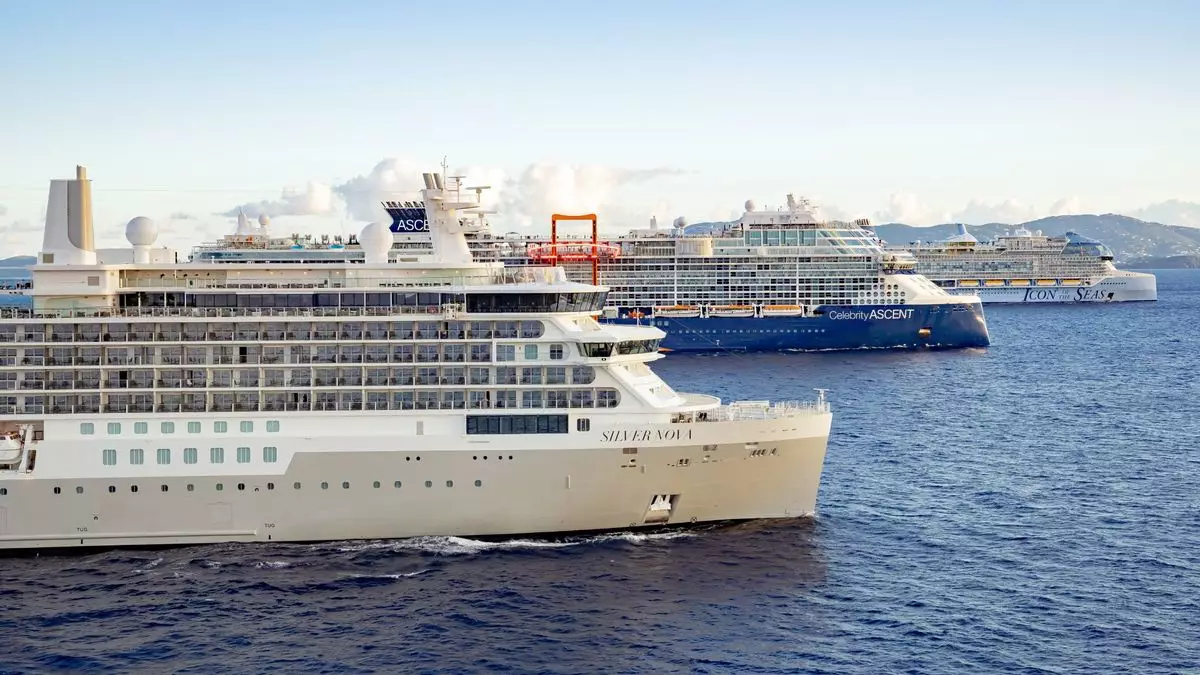When it comes to cruise passengers, loyalty to a particular cruise line is a common trend. For example, Kelly Brewer, owner of a Cruise Planners franchise, has noticed that her clients are hesitant to switch cruise lines once they have achieved a certain status with one brand. This sense of loyalty often prevents them from exploring other cruise options, even if the rates are similar. Passengers proudly display their loyalty status, considering it a symbol of achievement and connection to the brand. This reluctance to switch brands is a common phenomenon among cruise passengers, driven by the allure of special perks and bragging rights.
Loyalty programs in the cruise industry have undergone a transformation in recent years. Cruise lines are now offering status-matching programs to recognize and reward passengers for their loyalty, even if it’s with other brands. This shift reflects a broader trend in businesses focusing on increasing customer lifetime value rather than just acquiring new clients. Brands are now emphasizing the importance of retaining customers over the long term and creating lasting relationships with them. Loyalty programs are becoming more sophisticated in response to travelers’ demands for value, especially in light of ongoing concerns about inflation.
Loyalty program perks within the cruise industry vary widely, ranging from free WiFi and complimentary drinks to priority boarding and exclusive experiences for guests at higher status levels. Each cruise line has its own criteria for awarding loyalty status to guests, whether based on the number of cruises taken, days sailed, or points earned through purchases. Some cruise lines offer status-matching programs to transfer loyalty status across sister brands, allowing passengers to enjoy consistent benefits across different cruise experiences within the same family of brands.
Some cruise lines collaborate with partner companies to recognize loyalty points or status earned outside of their own brand. For example, Regent Seven Seas Cruises partners with GHA Discovery, while Norwegian Cruise Line collaborates with the WorldPoints Rewards credit card. Brand recognition and loyalty matching among sister brands and affiliated hospitality companies vary, with some lines offering seamless integration of loyalty programs across different travel sectors. Virgin Voyages, a newcomer to the cruise industry, is actively engaging in status matching with other cruise lines as part of its brand awareness strategy.
As loyalty programs in the cruise industry continue to evolve, cruise lines are focusing on enhancing the guest experience by offering personalized perks and rewards for loyal passengers. MSC Cruises and its luxury sister line, Explora Journeys, are exploring innovative ways to engage passengers and incentivize repeat business through loyalty programs. By recognizing and rewarding customer loyalty, cruise lines can build stronger relationships with passengers and create a sense of belonging and exclusivity within their brand ecosystem.
Overall, loyalty programs play a crucial role in shaping the behavior and preferences of cruise passengers, influencing their choice of cruise line and driving brand loyalty. As the cruise industry navigates new challenges and opportunities, loyalty programs will remain a key strategy for engaging passengers, enhancing the guest experience, and driving long-term customer relationships. By understanding the impact of loyalty programs on cruise passengers, cruise lines can tailor their offerings to meet the evolving needs and expectations of modern travelers in an increasingly competitive market.

